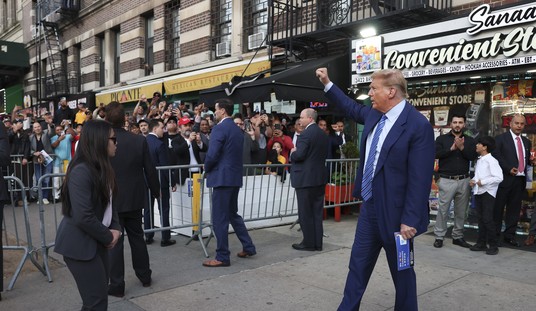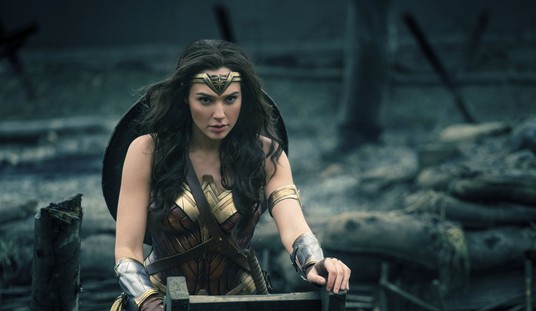“Where do They come from, those whom we so much dread,
As on our dearest location falls the chill
Of their crooked wing….” –W.H. Auden, “Crisis,” (1940)
The attack on the U.S. consulate in Benghazi that resulted in the murder of four Americans has become a huge issue. There are many stories and rumors that are still being debated and more information is coming out. What I’m going to try to do here is to analyze the enduring themes raised by this tragic event.
Why Do They Hate Us?
There is a debate over the causes of terrorism and anti-Americanism in the world. One possible view is that the principal problem is that of genuine conflict. The adversaries hold certain ideological ideas — say, revolutionary Islamism — to which American society and policies are antithetical. The collision (as with communism, Nazism, and aggressive Japanese militarism in earlier decades) is inevitable. The United States is inconveniencing the totalitarians both because of what it does (policies) and because of what it represents (freedom, democracy, capitalism).
The other view currently dominates among many Western academic “experts,” politicians, mass media, and even governments. That concept is that the hatred is our own fault. We have done things in the past — which require apologies — and are doing things in the present that make people angry at America who otherwise would be friendly.
An exception is made for a “tiny minority of extremists,” mainly a code word for al-Qaeda, but the more sophisticated argument is that such people would have no following if America handled things properly.
Thus, in this case, if American facilities are attacked in Cairo and Benghazi it must have been something America did wrong, to wit, an insulting video made by an immigrant from the Middle East about Islam.
Diagnosing the problem tells one what the cure is: sensitivity, respect, tightening rules against such insults, bowing and scraping, refusing to identify radicals and terrorists with Islam in any way, giving large amounts of money, helping the Muslim Brotherhood so it will be grateful later, telling the NASA director to make up stuff about Muslim contributions to space travel, etc.
That is the path the Obama Administration, with major support from the intellectual-cultural establishment, has followed.
Why Do Some of Us Hate Ourselves?
The answer to this question follows from the first answer. If “we” are responsible for the hatred and conflict, then we have done evil and must repent. We are the problem or, as one much-feted American intellectual put it, the United States is the cancer of the world.
In the Benghazi case, however, it is hard to come up with more than a video, according to the dominant view. After all, didn’t the United States “liberate” Libya from a terrible dictator? Of course, the problem is that from the standpoint of the radicals, the United States merely became Libya’s new master, blocking the revolutionary Islamist, Sharia state they wanted, producing a “puppet” (who cares if it was elected?) government.
America is thus the prime enemy not because it did something evil but because it did something which the U.S. government regarded as good. If they hate us in Libya for sinful policies, then President Barack Obama, not the Egyptian-born video producer, is the chief sinner.
Is America a Bully or a Leader?
As noted above, the establishment view today is that America has been a bully in the past, acting unilaterally and not respecting the views of others. Obama has said this directly when speaking to foreign — including Middle Eastern — audiences.
But how does one stop being a bully? By showing that one isn’t tough and doesn’t protect one’s interests fiercely. Thus, in the Benghazi case, the U.S. government didn’t send the ambassador to Benghazi with Americans to guard him, nor did the consulate have Americans to provide security. To do so would be to show disrespect for the Libyans, to act in a way that might be perceived of as imperialistic.
Similarly, the president would not call in an airstrike against the attackers or send an armed rescue team to the consulate because to do so would have signaled an arrogance and aggressiveness, putting Americans first and not acting as a citizen of the world.
Who Is the Enemy?
If the enemy is defined as solely al-Qaeda, this allows a policy of treating all other Islamists — even the Afghan Taliban! — as a potential friend. Both Vice President Biden and Secretary of State Hillary Clinton, for example, explained that leading elements of the Taliban, a group complicit in the September 11 attacks, could be won over. Certainly the Muslim Brotherhood — the world’s largest and most powerful international anti-American organization — was helped and treated as a potential ally.
Al-Qaeda, however, is a relatively weak organization, capable of staging only sporadic terror attacks, with the exception perhaps of remote Somalia, Yemen, Afghanistan, and parts of Pakistan. It cannot take over whole countries. The fact that Egypt, the Gaza Strip, Lebanon, Turkey, and perhaps soon Syria are governed by Islamists is a far greater strategic threat.
Then why couldn’t the Obama administration have said that the consulate was attacked by evil al-Qaeda for no reason other than its lust to murder Americans, with the perfect symbolism of the attack having been staged on September 11?
There was a dual problem. First, the group involved was one the U.S. government had worked with during the Libyan civil war so it could not admit they were close to al-Qaeda. Second, the official line was that al-Qaeda had been defeated so it could not still be a threat. Therefore, an alternative narrative and a cover-up were needed.
Competence and Courage
Once upon a time a candidate for the Democratic presidential nomination warned that if Obama were elected president he would not be reliable in a crisis when answering a 3 a.m. phone call requiring instant response. That claim, of course, came from Hillary Clinton. Benghazi was that phone call.
That conclusion is reinforced by the killing of al-Qaeda leader Osama bin Laden. Notice something of huge importance that has been neglected. Obama and his supporters bragged about his indecision on the no-brainer of getting the architect of the September 11 attacks. If he would hesitate on an obvious call like that one, how would he deal with a consulate under attack in Benghazi?
There is, or should be, a sacred trust between the U.S. government and those who put themselves in harm’s way for the sake of America. Everything should be done to protect and save them. In this case, however, the country’s leaders let those people down both before and during the crisis.
Note, too, how revealingly Obama responded to this issue in the presidential debate. Once the crisis was over, Obama said, he swung into action, securing those who still survived, investigating who was responsible, and promising to punish them.
What about before and during the multi-hour assault? Silence. The details — for example, whether there was a drone overhead — obscure the fact that no proper preparations were made for the ambassador and consulate being unprotected and that passivity prevailed during the battle.
If the U.S. government didn’t trust the Libyans, wouldn’t that show that America thought itself superior and that its interests should override those of others? And isn’t that racist?
One could say that the Obama administration’s failure to act denotes incompetence, and there is truth there. But the larger picture is that it was a failure due to its concept of America and the world. The real danger is not from totalitarian enemies grown bolder by the fact of American weakness and a loss of self-confidence. No, according to the prevailing view, it was rather excessive American self-confidence and strength in the past.
The effort to change those bad old ways (and to open a new era with completely different behavior) and the failure to perceive the real enemies and to understand America’s rights and duties were the causes of the incident in Benghazi, and many other setbacks as well.
The chickens have come back to roost and have roosted in the White House. And the vultures are gathering.








Join the conversation as a VIP Member